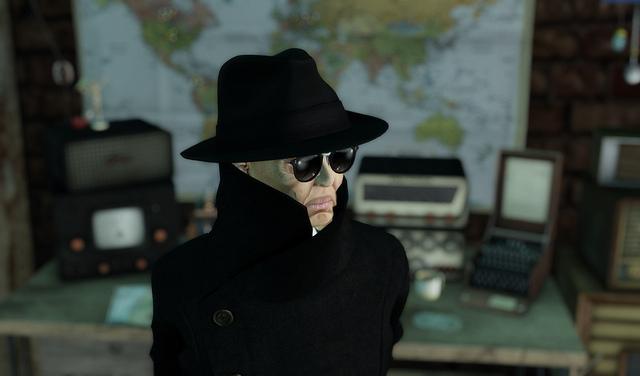
The world
Sunday’s mass shooting in Las Vegas inevitably spawned an overflow of opinion pieces and analysis profiling the gunman. Was he a terrorist? And what was the rationale behind Islamic State’s unusual claim of the attack? The massacre also further reignited disputes about US gun control laws. The Daily Wire published a vociferous defence of the Second Amendment; for a digest of legislative and practical considerations involved with gun ownership, read this. But to put things into perspective with numbers, the BBC and Pew offer excellent quantitative analysis on Americans’ complex relationship with guns.
Two pieces came out this week illustrating different aspects of civic activism confronting power. Carnegie Europe offers an insightful analysis of the ‘current surge in global protest’, evaluating issues, grievances and concerns of organisations and communities. Ta-Nahesi Coates argues in the Atlantic that generational wisdom is required to reify the goals of contemporary black activism—which was similarly the case during the civil-rights movement in the 1950s.
For murder mystery junkies, espionage and deception in Asia and the Pacific are on the cards this week. First up, two great reads on North Korea and secret agents. An article on GQ.com explains how North Korean agents arranged the murder of Kim Jong-nam by duping two women—one from Vietnam and one from Indonesia—into poisoning the brother of the incumbent North Korea dictator. And a compelling read from Politico about one of America’s most effective and brutal spymasters, Donald Nichols, provides excellent context on the origins of the current US – North Korea crisis and ‘shines a light on the role of the United States in the creation of a divided Korea’. Lastly, an important read demonstrating the disturbing long-term effects of Myanmar’s army generals’ intentional invention and inflation of a connection between Rohingya insurgents and international jihadist organisations.
There’s an understandable focus on spiralling events on the Korea peninsula. After all, there is nothing quite like the prospect of nuclear conflict to focus one’s mind. But it’s important to not lose sight of other potential risks. Ian Easton’s new book, The Chinese invasion threat: Taiwan’s defense and American strategy, is an important contribution to understanding the risk of a conflict between China and Taiwan, and how that might spiral into a major US–China war. The book places you in the minds of the planner on both sides of the Taiwan straits, and considers how China is building towards a ‘2020 Plan’ for use of force against Taiwan. It has just been published, and you can read the author’s summary of the topic here.
Tech geek of the week, by Malcolm Davis
One scene in the third episode of Star Trek: Discovery has caught the attention of computer geeks. The lead character, Michael Burnham (female), runs code on a 23rd-century computer, except it’s actually 21st-century Microsoft Windows code. The really interesting thing is that the code on screen is decompiled code for the Stuxnet virus, which was originally used to undermine Iran’s nuclear weapons program during the Obama administration in 2010. The National Security Agency can clearly reach anywhere through both time and space!
There’s been a flurry of excitement about hypersonics with the sighting of a flight research vehicle precursor to the proposed Mach 6 SR-72, a successor to the now retired Mach 3.5 SR-71 Blackbird. Lockheed Martin’s Skunk Works is aiming for a first flight of the subscale FRV around 2020. It’s unmanned, similar in size to the F-22, and powered by a combined cycle engine that can redesign itself in mid-flight to cruise at speeds faster than a speeding bullet.
The space scene was understandably dominated by Elon Musk and his vision for making humanity a multi-planet species. However, Lockheed Martin has also promoted an orbital ‘Mars Base Camp’ concept, and a reusable lander to get humans to the surface in the 2030s.
Finally, The Matrix is all wrong. Theoretical physicists at Oxford University have proven we don’t live in a massive computer simulation because storing information about just a couple of hundred electrons—let alone an entire universe—requires more atoms than exist in the universe.
Podcasts
In the latest Defence Connect podcast, Saber Astronautics chief executive Jason Held talks defence, space and beer.
This week’s Intelligence Matters podcast from The Cipher Brief is a conversation between former US national security advisor Tom Donilon and former acting CIA director Michael Morrell. A veteran expert in national security, Donilon traverses his career in politics, beginning in 1977 under President Jimmy Carter, and digs deep into his experiences of geopolitics, cybersecurity and foreign policy.
Videos
Three videos that caught our eye this week: the trailer for First They Killed My Father, Angelina Jolie’s powerful Netflix film about Khmer Rouge in Cambodia; Changaiz Khan, the story of a girl from Taliban Waziristan who became a successful athlete by living disguised as a boy and now uses sports to advocate for women’s rights in Pakistan; and a pro-separatist video celebrating the Catalonian independence vote.
Events
Canberra, 10 October, at 1800: PricewaterhouseCoopers, in partnership with ANU Centre for European Studies, is presenting a public lecture on ‘Global politics in an era of national populism’. The speaker is Lord Jack McConnell, former first minister of Scotland. To register, see the event page.
Canberra, 11 October, at 1800: The ANU ADSS Women in Security Panel will feature three women working in the strategic and defence community. The event is free for ADSS members, but for further information see the Facebook page.
Canberra, 12 October, at 1630: Book launch, Ethics under fire, by Professor Tom Frame and Dr Albert Palazzo, at Russell Offices. Lieutenant General Angus Campbell AO DSC, Chief of Army, will launch the book, which offers an insight into the key issues facing the modern army arising from technology, tactics and terrorism. Register here.
Brisbane, 10 October, at 1800: Investigative journalist Graham Readfearn will lead a discussion on ‘Climate policy in the Trump era’, hosted by AIIA in Queensland. Register for tickets here.